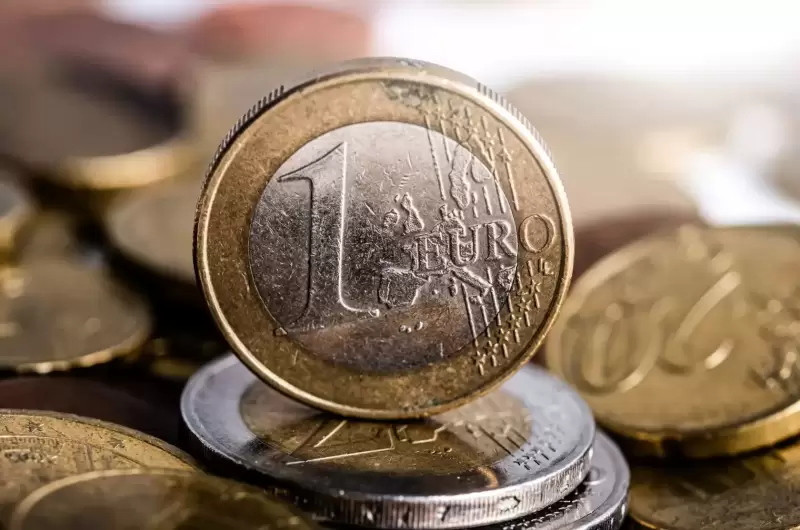Coindeskが暗号通貨技術開発における最も重要な物語の毎週のまとめであるプロトコルへようこそ。

Story Protocol, an intellectual property-focused blockchain, has officially launched its mainnet and unveiled an associated IP token ($IP). The blockchain, positioned as the "world's intellectual property network," enables users to register their IP and track its usage by others. The $IP token, announced earlier this month, serves three primary functions: covering transaction fees, offering users a vote in the platform's governance system, and facilitating the tracking and payment of others using data to train AI models. In a recent development, PIP Labs, the primary developer of the Story chain at the intersection of blockchain and artificial intelligence, has raised $80 million in Series B venture funding, led by Andreessen Horowitz (a16z), bringing the project's total funding to $140 million. The funding round follows the launch of the Story mainnet, which is accompanied by the first unlock event for the just-announced IP token. According to the project, "Story is unlocking 25% of the initial 1 billion $IP, with 58.4% devoted to the ecosystem and community, foundation, and initial incentives."
知的財産に焦点を当てたブロックチェーンであるStory Protocolは、正式にメインネットを発売し、関連するIPトークン($ IP)を発表しました。 「世界の知的財産ネットワーク」として位置づけられたブロックチェーンは、ユーザーがIPを登録し、他の人がその使用法を追跡できるようにします。今月初めに発表された$ IPトークンは、3つの主要な機能を果たします。トランザクション料金をカバーし、ユーザーにプラットフォームのガバナンスシステムでの投票を提供し、AIモデルをトレーニングするためにデータを使用して他の人の追跡と支払いを促進します。最近の開発では、ブロックチェーンと人工知能の交差点にあるストーリーチェーンの主要な開発者であるPIP Labsは、Andreessen Horowitz(A16Z)が率いるシリーズBベンチャー資金で8,000万ドルを調達し、プロジェクトの総資金を1億4,000万ドルにもたらしました。 。資金調達ラウンドは、Story Mainnetの発売に続き、発表されたばかりのIPトークンの最初のロック解除イベントを伴います。プロジェクトによると、「ストーリーは最初の10億ドルのIPの25%を解き放ち、58.4%が生態系とコミュニティ、財団、および初期インセンティブに専念しています。」
In other news, a group of top Ethereum developers and leaders have banded together to create a new framework that would simplify and standardize cross-chain token transfers. The initiative, dubbed the Open Intents Framework (OIF), was spearheaded by contributors from the Ethereum Foundation and is supported by 25 projects, including teams building layer-2s like Arbitrum, Optimism, ZKsync, and Scroll, according to a press release shared with CoinDesk. The goal of the initiative is to bring “intents” to all corners of the Ethereum ecosystem, which is a technological feature that lets a blockchain user accomplish a specific goal by asking an intermediary to fulfill that goal (like a trade or transaction they want to make.) There are some standards out there that are already trying to make cross-chain transactions easier by using intents. ERC-7683, which was introduced by the team behind the decentralized exchange Uniswap and the Across protocol, is one of those standards circulating the Ethereum space lately, and is supposed to address fragmentation and allow more chains in the Ethereum ecosystem to interoperate. But the OIF team claims that they will build on that standard through their framework allowing intents to function at scale. “By offering shared infrastructure and execution coordination, OIF makes intent-based transactions permissionless, efficient, and accessible for all projects,” the press release said.
他のニュースでは、トップのイーサリアム開発者とリーダーのグループが団結して、クロスチェーントークンの転送を簡素化および標準化する新しいフレームワークを作成しました。 Open Intents Framework(OIF)と呼ばれるこのイニシアチブは、Ethereum Foundationの貢献者が主導し、Arbitrum、Optimism、Zksync、Scrollなどのレイヤー-2を構築するチームを含む25のプロジェクトでサポートされています。 Coindesk。このイニシアチブの目標は、イーサリアムエコシステムのすべてのコーナーに「意図」をもたらすことです。これは、ブロックチェーンユーザーがその目標を達成するように仲介者に求めることで特定の目標を達成できる技術的機能です(彼らがしたい取引や取引などメイク。)そこには、意図を使用してクロスチェーントランザクションを既に容易にしようとしている基準がいくつかあります。 ERC-7683は、分散型Exchange UniswapとAtrosプロトコルの背後にあるチームによって導入され、最近のイーサリアム空間を流通している基準の1つであり、断片化に対処し、イーサリアムエコシステムのより多くのチェーンが相互断定できるようにすることになっています。しかし、OIFチームは、意図が大規模に機能することを可能にするフレームワークを通じて、その基準に基づいて構築されると主張しています。 「共有インフラストラクチャと実行の調整を提供することにより、OIFは、すべてのプロジェクトで意図ベースのトランザクションを許可され、効率的で、アクセス可能にします」とプレスリリースは述べています。
Monad, an Ethereum Virtual Machine (EVM) layer-1 blockchain about to launch its testnet, has joined forces with Orderly Network, a decentralized exchange (DEX) infrastructure supporting a range of other chains, as the platforms spread their nets wide in anticipation of a second decentralized finance (DeFi) summer. The arrival of the Monad testnet on Wednesday will provide traders with a fast EVM-compatible building site and the possibility of airdrops on the L1. Orderly’s band of 20 or so market makers includes Wintermute, Selini and Riverside, according to a press release. Firms in the decentralized trading industry, which includes major exchanges like Coinbase, are hoping for a surge of DeFi activity in the coming months as the crypto-friendly administration of President Donald Trump gives crypto a regulatory tailwind. The first DeFi summer, in 2020, came hot on the heels of Federal Reserve interest-rate cuts in response to the Covid outbreak. Orderly already offers users a shared order book across multiple blockchains, including Arbitrum, Optimism, Polygon, Base, Mantle and Near.
TestNetを起動しようとしているEthereum Virtual Machine(EVM)Layer-1ブロックチェーンであるMonadは、他のさまざまなチェーンをサポートする分散型交換(DEX)インフラストラクチャであるOrderly Networkで力を合わせました。 2番目の分散財務(DEFI)夏。水曜日にモナドテストネットが到着すると、トレーダーは速いEVM互換の建築現場とL1のエアドロップの可能性を提供します。プレスリリースによると、20人ほどのマーケットメーカーのOrderlyのバンドには、WinterMute、Selini、Riversideが含まれています。コインベースのような主要な交換を含む分散型貿易業界の企業は、ドナルド・トランプ大統領の暗号化に優しい管理が暗号に規制上の尾をかぶっているため、今後数か月間、defi活動の急増を望んでいます。 2020年の最初の夏は、コビッドの発生に応じて連邦準備制度の金利削減の直後に熱くなりました。 Orderlyは、arbitrum、楽観、ポリゴン、ベース、マントルなど、複数のブロックチェーンにわたって共有注文帳をユーザーに提供しています。
Finally, Donald Trump isn't all that different from crypto. According to Rushi Manche, the founder of blockchain company Movement, "Crypto is an attention game." It's fitting, then, that Trump — the master of all things attention — is so at home selling memecoins. But it's not just Trump's inner circle that's managed to capitalize on his crypto ventures, which include the $TRUMP coin and World Liberty Financial. Once a vocal crypto skeptic, the president has become the industry's largest "key opinion leader" — or KOL, in blockchain industry parlance: a trader whose portfolio is closely watched by other investors deciding what to buy and sell. Trump's foray into crypto has created a new go-to-market playbook for ambitious token peddlers like Manche — blockchain founders who realize pumping the price of a token can be as simple as elbowing into a sitting president's crypto portfolio. The president's primary vehicle for blockchain trades is World Liberty Financial (WLFI), a decentralized finance (DeFi) venture he announced with his sons over the summer. After accruing more than $400 million by selling a token, the company, which does not yet have a product, has built up a portfolio containing millions of dollars in the assets of other crypto projects. On Wednesday, it announced it was launching an official "strategic reserve" of crypto investments. The trades
最後に、ドナルド・トランプは暗号とそれほど違いはありません。 Blockchain Company Movementの創設者であるRushi Mancheによると、「Cryptoは注意ゲームです。」それで、トランプ - すべての注意のマスターであるトランプが家でメモコインを売っているのはふさわしいことです。しかし、$トランプコインやワールドリバティファイナンシャルなど、彼の暗号ベンチャーを活用することができたのは、トランプの内輪だけではありません。かつてボーカルの暗号懐疑論者であった大統領は、ブロックチェーン業界の用語で、業界最大の「主要な意見リーダー」、つまりKOLになりました。トランプのCryptoへの進出は、Mancheのような野心的なトークンの行商人のための新しい市場投入プレイブックを作成しました。トークンの価格を汲み上げることを実現するブロックチェーンの創設者は、座っている大統領の暗号ポートフォリオに肘を伸ばすのと同じくらい簡単です。大統領のブロックチェーン取引の主な手段は、夏に息子たちと発表した分散型財務(DEFI)ベンチャーであるWorld Liberty Financial(WLFI)です。トークンを販売して4億ドル以上を獲得した後、まだ製品を持っていない会社は、他の暗号プロジェクトの資産に数百万ドルを含むポートフォリオを構築しました。水曜日に、Crypto Investmentsの公式「戦略的保護区」を立ち上げることを発表しました。取引




















































































